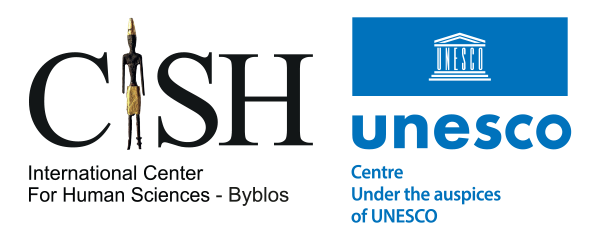Thematic Priorities
Although the mandate of CISH is very broad, covering the social and human sciences sectors, the strategic agenda of the Centre is focused on prioritized thematic areas, concentrating resources and efforts where substantial change can be made and properly measured.
Following the current trends within humanities, in relation to the global changing context, CISH new thematic agenda is built around the “transformation” paradigm. The usage of this paradigm is understood in a long-term vision, that encompasses both the past and the future, according to the human and social sciences perspectives. CISH approaches these priorities in a multidisciplinary way, with tailored programmatic plans reflected in the Strategic objectives.
Human transformations
The Recommendation on the Ethics of Artificial Intelligence adopted by the 41st session of the UNESCO General Conference (November 2021) recognizes the profound and dynamic impact of artificial intelligence (AI) on societies, ecosystems, and human lives. New ethical challenges are hence created by the capacity of AI algorithms to reproduce biases, for instance regarding gender, ethnicity, and age, and thus to exacerbate already existing forms of discrimination, identity prejudice and stereotyping.
The need for “digital anthropology” is crucial to make data more human. To cope with this transformations CISH chose to incorporate “Digital anthropology and Ethics of Artificial Intelligence” into its strategic priority areas.
Social and cultural transformations
In 2003, UNESCO developed an “Integrated Strategy on Democracy within the Framework of the International Centre for Human Sciences”. The mandate of CISH to work on Democracy was reconfirmed with the publication of the UNESCO Road Map “Democracy and Renewal in the Arab World: UNESCO supports the transitions to democracy” (2011). CISH understands democracy in a wide sense as a process for building stable and inclusive societies, based on participation, respect of diversity, human rights and rule of law. The topic remains among the top priorities in the Arab States Region and globally, because of the existence of conflicts, authoritarianism, challenges for inclusive participation and equal opportunities, in addition to the growing xenophobia, populism, and sectarianism. Therefore, CISH acknowledges that the topic still requires contextual and diversified approaches in studies and policies, and keeps “inclusive democracies” into its strategic priority areas.
Environmental transformations
CISH is part of the BRIDGES international coalition that is committed to a critical understanding of sustainability and to study complex socio-ecosystems as a web of meanings and interactions, inherently multilayered and pluralistic. Anchored in the humanities, it aims at broadening sustainability science by bridging to multiple forms of knowledge, including traditional knowledge.
With the alarming calls and growing awareness about the urgency of measures that reflect sustainable living policies, the environmental transformations are more than ever a global challenge that needs to be approached, not only from technical perspective, but also as a priority topic for human and social sciences.
CISH looks with its current strategy to raise awareness, especially in the Arab States Region, on the grassroots level, as well as among academic leaders and policymakers about the Impact of environmental transformations on human and social lives, generating new forms of vulnerabilities and tensions, and to contribute in spreading a culture of sustainable living and cross-generational responsibility and solidarity.
